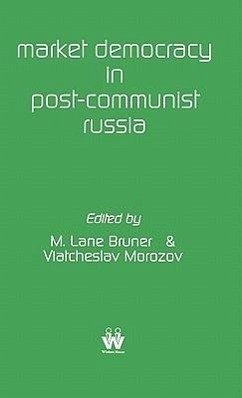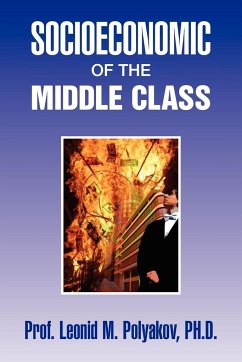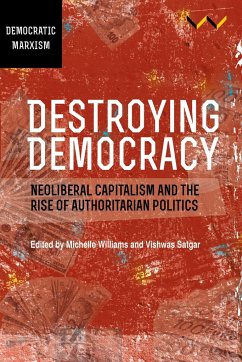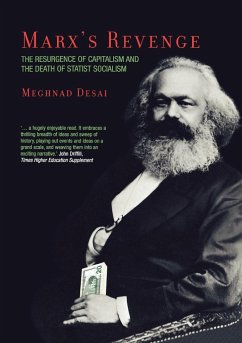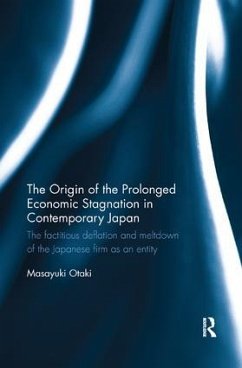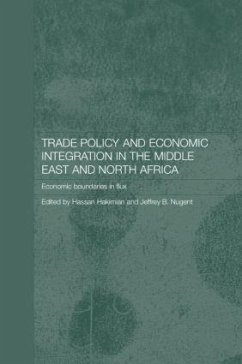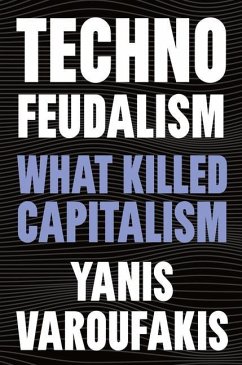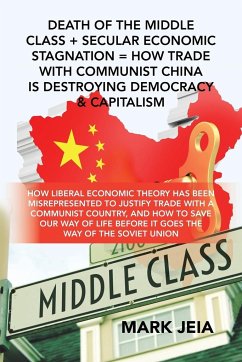
Death of the Middle Class + Secular Economic Stagnation = How Trade with Communist China Is Destroying Democracy & Capitalism
How Liberal Economic Theory Has Been Misrepresented to Justify Trade with a Communist Country, and How to Save Our Way of Life B

PAYBACK Punkte
9 °P sammeln!
The book discusses the economic problems we face in the world today, especially in developed countries-the stagnation and decline of household incomes and productivity growth and the growing threat to western political systems. The book clarifies how the established framework of liberal economics has been misrepresented to justify free trade and immigration with a large, low-wage country such as China, whose economic and political system is largely based on Communism despite what the media says. The book shows what liberal economic theory actually says about it-that such trade is inevitably ha...
The book discusses the economic problems we face in the world today, especially in developed countries-the stagnation and decline of household incomes and productivity growth and the growing threat to western political systems. The book clarifies how the established framework of liberal economics has been misrepresented to justify free trade and immigration with a large, low-wage country such as China, whose economic and political system is largely based on Communism despite what the media says. The book shows what liberal economic theory actually says about it-that such trade is inevitably harmful to almost the entirety of the population of developed countries by negatively impacting the supply and demand balance of labor, the incentives for labor-saving technological innovation (the main driver of living standards in history), the global capitalist system for allocation of scarce resources, the normal functioning of all markets in the world, and the bargaining power of consumers and corporations versus China. Finally, the book examines some alternative explanations and policies that have been advanced and explains how they are at best a dangerous distraction and at worst harmful. Government spending, monetary policy-interest rates and QE, reforms, the role of technology, demographics (people getting older), and inequality. KIRKUS REVIEW A debut book offers a rousing call to halt trade with China and reinvigorate truly liberal economic trade policy. Jeia presents a complex argument shorn of hypertechnical language, composed in a breezy, informal style. While it's common to pillory China for currency manipulation, it's comparatively rare for an economist to focus on the long-term impact the country has had on the international labor market. Economic experts seem to broadly agree that inequality is in an alarming ascendancy and that the global middle class is worryingly pinched. Jeia begins his work with a grim diagnosis of the problem: living standards are in a steady decline; decent middle-class jobs are rapidly disappearing and with them sustainable wages; and the manufacturing industry in the U.S. is hobbled. Politically, this has led to a historic rise in polarizing partisanship and a general loss of trust in government. The principal problem, the author argues, is the economic hegemony of China. Despite what many contend, trade with China has had pernicious effects on the global economy. First, China's introduction of a massive workforce of cheap labor has generally lowered wages for the rest of the world, a result conventional liberal economic theory predicted. In addition, the existence of so much low-cost labor stymies innovation since it undermines the incentive for new technology or new job training. Furthermore, China functions as a Soviet-style monopoly, and its continued growth necessarily comes at the expense of the rest of the global market, which essentially compensates the nation for its systemic inefficiencies. Jeia offers a number of potential solutions, which include what he calls "labour differential tariffs," specifically targeted to level the competitive playing field by penalizing those countries that maintain artificially low wages. But even this is not enough: "Therefore, the only real solution to the problems currently affecting the global economy is to completely remove China from the global trading system, as was done with the Soviet Union."



